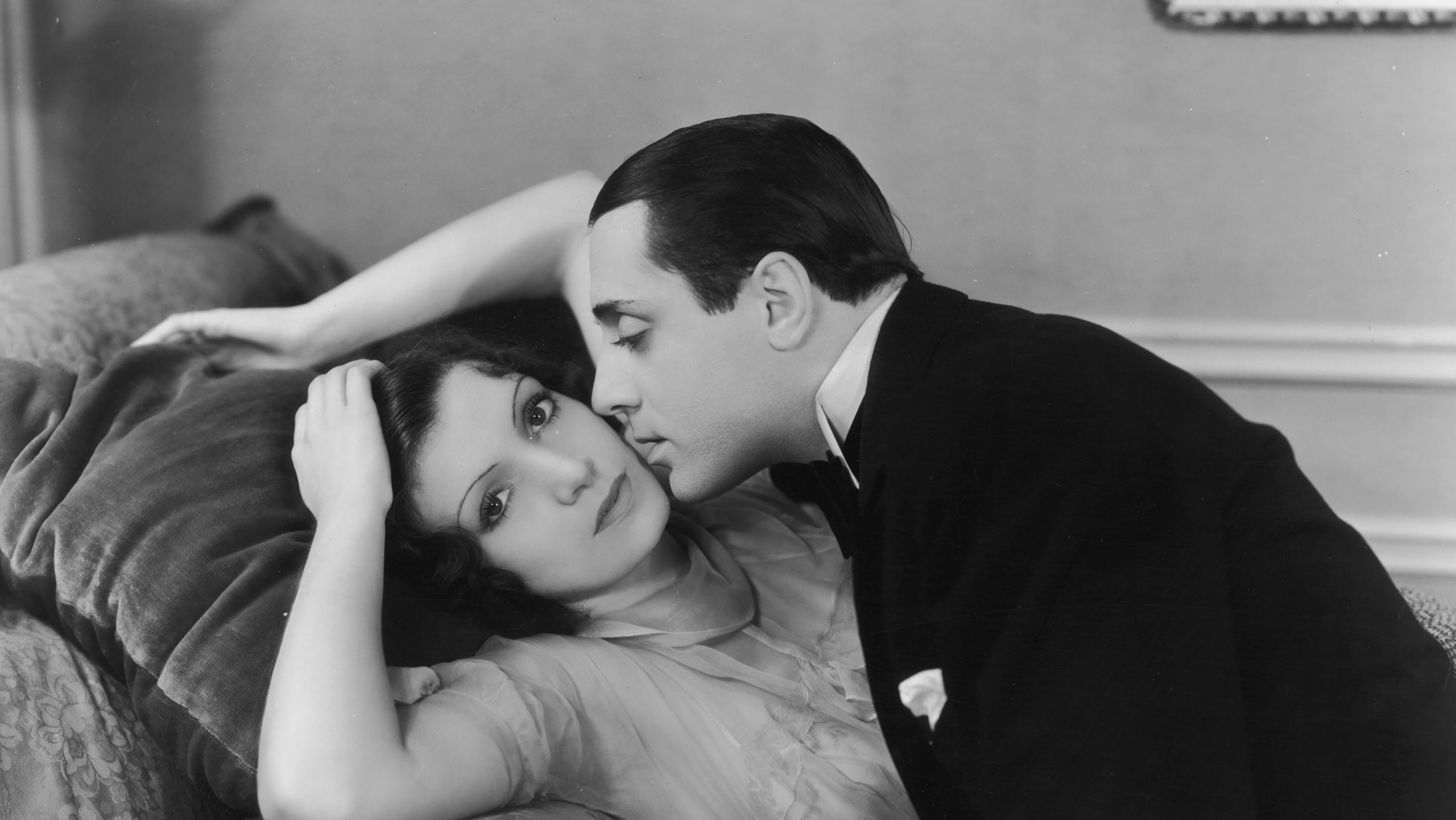
What Is “the Ick“? The Truth About Instant Disgust in Dating
If you spend time on social media, watch shows like Love Island, or are currently in the dating pool, you’re probably well aware of the concept of “the ick.” That sudden feeling of disgust towards a person you’re seeing can come out of nowhere—and, inexplicably, it’s usually brought on by something totally trivial.
To wit, here are just a few of the many “icks” I’ve recently come across on TikTok: Doing the wave at a baseball game. Hopping over a puddle. Sampling ice cream from a tiny spoon. Starting a lawnmower. Getting off a chairlift. Running for a bus. Using a baby voice while petting a dog. Saying “whoopsie.”
Yes, all of these things are completely normal. And, yes, every single one of us has done or probably will do one of these things at some point in our lives. But that’s the thing about the ick: It doesn’t really make a lot of sense. As Morgan says on Nobody Wants This, “You can’t fight the ick.”
Or… can you? Conceptually, the ick might seem silly—even kind of mean—but experts say there could be more to it than meets the eye. Below, a look at the psychology behind the ick—and what to do if you find yourself in its terrible throes.
The ick can best be described as a sudden, internal vibe shift; it’s the moment when your desire for a potential paramour evaporates and is quickly replaced by total disgust. It’s not just a tiny twinge, either—it’s a full-body cringe. “The feeling is real, visceral, and hard to shake,” says Matt Hussey, an integrative therapist based in London.
While the ick can certainly be brought about by something kind of gross—like, not changing one’s bed sheets enough, or wiping greasy hands on one’s pants—more often than not, the inciting incident is relatively innocuous: wearing a certain kind of shoe, mispronouncing a word, sighing too loudly. “To be an ick, it needs to be a ‘normal’ event that other people won’t react to,” says Stockholm-based sexologist and relationship therapist Sofie Roos.
For example, having bad breath or body odor isn’t really considered an ick—almost everyone is turned off by those. A true ick is much more subjective. “It’s a personal micro turn-off that most people don’t bother about,” says Roos.
That said, the ick is surprisingly common: 64% of people report that they’ve felt it, with women more likely to experience it than men.
Signs you have the ickIf you have the ick, you probably know you have the ick—it’s usually pretty impossible to ignore. “It’s a full-body ‘ugh,’ sometimes subtle, sometimes overwhelming,” says Hussey. “You feel your desire drain like a punctured tire. Physical affection suddenly feels effortful. You cringe when they touch you. You start to dread their texts. Little things you used to find endearing now make your skin crawl.”
Aside from being repulsed on a gut-level, you may also feel a sense of shame: “You feel guilty because they haven’t technically done anything wrong,” says Sydney-based clinical counsellor and psychotherapist Ronald Hoang.
A brief history of the ickThe ick may seem like a modern term, but its roots can be traced back to some truly ick-worthy occurrences on decades-old TV shows. In a 1995 episode of Friends called “The Ick Factor,” Monica unwittingly dates a high school student—definitely icky—and, in a 1998 episode of Ally McBeal, Ally understandably starts “feeling the ick” when her boss asks her on a date.
By 2004, the ick was taking on a bit more of its current-day nuance: In a Season 6 episode of Sex and the City (also titled “The Ick Factor”), Carrie can’t decide whether Aleksandr Petrovsky’s poetry-reading and piano-playing are romantic or repulsive.
In 2017, modern audiences met the ick when Love Island contestant Olivia Attwood proclaimed that fellow contestant Sam Gowland was a “nice guy” who gave her “the ick” nevertheless. From then, a TikTok trend was born.
The psychology behind the ickAt its core, the ick is often a protective response—it just isn’t always super clear what, exactly, it’s protecting us from. However, as with all mysterious human behavior, experts have plenty of theories.
On a biological level, “sometimes, it’s an evolutionary disgust response kicking in,” says Hussey. “Disgust evolved to keep us safe from disease, and in relationships, it can signal when someone feels incompatible at a gut level.” In other words, the ick could serve as a subconscious detection system: Your intuition knows something about this person isn’t a match, so your brain fixates on a seemingly harmless trait in order to ring the alarm.
There’s also the possibility that the ick has to do with attachment styles. “Those with avoidant attachment might experience the ick more frequently, as they subconsciously push people away when emotional intimacy grows,” says Hoang.
A recent study seems to confirm this phenomenon, and even goes as far as to link the ick with rigid personality traits like narcissism and perfectionism. “People who hold others—and, therefore, often themselves—to idealized standards tend to be more prone to getting the ick,” notes Hussey. “It’s a way of unconsciously managing anxiety or exerting control. Instead of dealing with emotional vulnerability, they focus on surface-level flaws. What seems like pickiness might be emotional self-protection in disguise.”
Gender and culture norms could also be at play—especially in the era of overly-curated social media feeds. “We’re dating in a swipe-left economy, where people are reduced to profiles and soundbites,” says Hussey. “That flattens nuance and makes it easier to ditch someone over a single cringe moment rather than having to sit with ambivalence. The ick might not always mean this isn’t the right person—sometimes it means, This person is making me feel something I don’t know how to handle.”
Then again, sometimes the ick is not that deep. For example, I personally find fedoras hideous and embarrassing, and I really don’t want to date someone who wears one, even ironically. Hoang says that’s valid: “The ick could simply be a matter of personal taste, not psychological wiring.”
When the ick is actually a red flagPersonal preferences aside, the ick could also be a red flag in disguise. “Sometimes it is your body registering a boundary your brain hasn’t processed yet,” Hussey says, adding that an ick is generally based on aesthetics, mannerisms, or personality quirks, while a red flag is rooted in values, morals, or behavior.
For example, speaking about an ex with contempt, stonewalling during an argument, or an inability to apologize are red flags because they signify deeper issues like a lack of empathy, aggression, emotional immaturity, entitlement, or manipulative behavior. “These are behavioral patterns, not just odd moments,” says Hussey. “They reflect what psychologists would call ‘low differentiation of self,’ or poor conflict tolerance—they aren’t just bad habits; they’re signs that the relationship might not be safe or sustainable long-term.”
If you’re unsure, Hoang says to ask yourself, “Is this just a matter of taste, or does it reflect something that’s truly incompatible with who I am?”
Can you come back from the ick?If, deep down, you know your ick is ridiculous and not a red flag, there’s hope. Most of the time, the ick isn’t really about the other person—it’s about our own fears. In such cases, Hussey says you need to get curious: “Instead of recoiling from the behavior, try to understand what it brings up in you,” he recommends. “Your nervous system might be reacting to the intimacy, the unfamiliarity, or your own internal expectations.”
To navigate the ick, Hoang recommends the following steps:
Pause: If the ick is sudden, wait it out. It might pass or soften with time.Reflect: Is this about them, or about your own fear of intimacy, perfectionism, or rigid standards? Is your mind trying to protect you from vulnerability?Zoom out: Consider their values, kindness, and how they treat you overall.Be honest: Can you accept this person fully, icks and all?You can also consider asking the person not to do the thing that’s causing the ick—but only within reason; requesting that someone never walk downhill or get off a chairlift would be completely out of line, after all.
“If what they are doing is unchangeable—for example, the way they laugh—don’t bring it up,” Roos agrees. However, “if it’s something less serious and easy to change, it’s fine to make them aware that you find it problematic.”
Just remember, real love isn’t about perfection. Nobody is flawless—including you. “We should look to be in a relationship where we can be authentically ourselves,” Hoang says. “This is how we obtain a true sense of belonging without having to exhaust ourselves trying to be someone we’re not. The right person will adore you for exactly who you are, quirks and all.”











